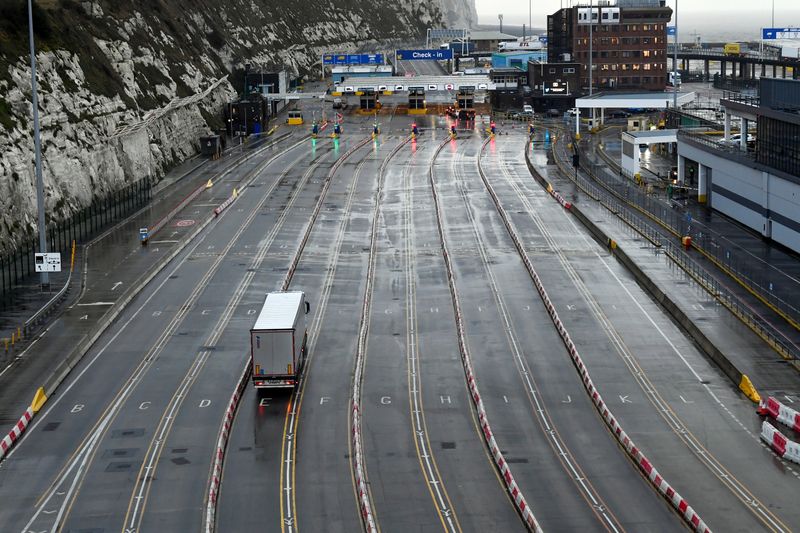BRUSSELS (Reuters) – The European Parliament kicked off a two-month review on Monday of the EU-UK trade agreement struck on Christmas Eve, promising to “properly scrutinise” the deal even if it is almost certainly bound to approve it.
Christophe Hansen, one of the lawmakers charged with steering the deal through parliament, said he regretted that the agreement had been rushed through before a full review.
Britain, he said, had driven negotiations to the very last moment in the hope of extracting concessions and so as to deprive lawmakers there a proper say.
“We want to properly scrutinise this agreement. The UK, the House of Commons, did it in less than a day,” the Christian Democrat from Luxembourg told the European Parliament’s trade committee.
“We have to make clear that this provisional application, which is not what the parliament wants, that this will not be a precedent for any future agreements,” he continued.
British lawmakers approved the post-Brexit trade deal with the European Union on Dec. 30. EU governments have also given their backing, but the deal is only in force provisionally, pending a vote in the European Parliament.
The provisional application lasts until February, although the EU parliament has said it should be extended to allow it to vote in mid-March. It is almost certainly expected to back the deal, given the alternative is a ‘no deal’ with the imposition of tariffs.
Various parliamentary committees began debates on the agreement on Monday, including specialists on fisheries and on transport. They are to provide formal opinions to the lead committees – trade and foreign affairs – by Feb. 1.
Most lawmakers on Monday simply asked questions of European Commission officials, but a number already signalled their support, saying it was better than the damaging alternative.
(Reporting by Philip Blenkinsop; Editing by Giles Elgood)



















